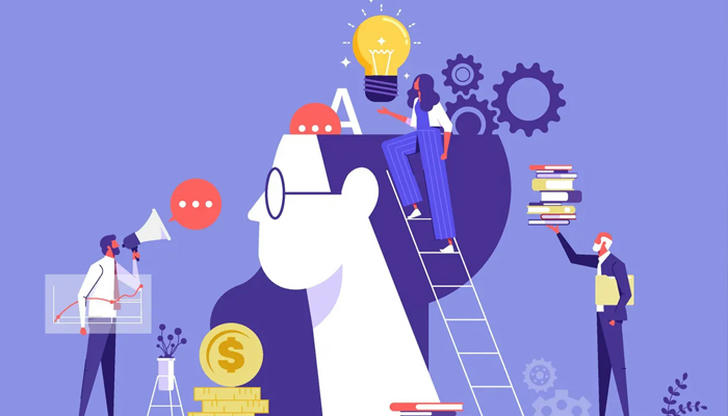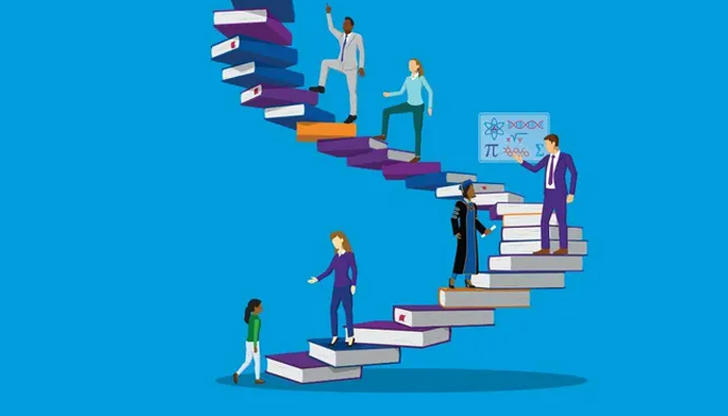The Importance of Lifelong Learning in a Changing Job Market
The modern job market is evolving at lightning speed. Technologies emerge, industries transform, and job roles shift—often faster than formal education systems can keep up. In this dynamic environment, one skill stands out above the rest: the ability to keep learning.
Lifelong learning is no longer a luxury or a personal hobby. It’s a career necessity. Whether you're a recent graduate, a mid-career professional, or nearing retirement, your ability to adapt through continuous learning could define your success.
This article explores the importance of lifelong learning in today’s job market, the benefits it offers, and practical strategies to integrate learning into your everyday life.

What Is Lifelong Learning?
Lifelong learning refers to the continuous, voluntary pursuit of knowledge for personal or professional reasons. It can happen through formal training, online courses, self-study, or informal mentoring.
It’s not limited to school or traditional education. Lifelong learners embrace growth in many forms:
- Learning a new software or tool at work
- Picking up a new language
- Earning a certification or micro-credential
- Reading books, listening to podcasts, or taking online courses
Why Lifelong Learning Matters More Than Ever
1. Rapid Technological Change
Digital tools, AI, automation, and big data are transforming industries from manufacturing to marketing. Roles that didn’t exist 10 years ago—like social media manager or data scientist—are now essential. Those who keep learning stay ahead of the curve.
2. Shorter Job Lifecycles
The average job tenure is shrinking. A single skillset may not be enough to sustain a 30- or 40-year career. Lifelong learning allows individuals to shift roles or industries as needed.
3. The Rise of the Gig and Freelance Economy
More people are working independently. To remain competitive, freelancers must continuously upgrade their skills and offerings.
4. Global Competition
Remote work and globalization have widened the talent pool. You may now compete with professionals from across the world. Staying relevant through learning gives you an edge.

Benefits of Lifelong Learning
1. Increased Employability
Hiring managers favor candidates who show initiative and adaptability. Ongoing education signals that you're proactive and open to change.
2. Career Growth and Salary Potential
Learning new skills can lead to promotions, leadership roles, or shifts into higher-paying sectors.
3. Improved Job Satisfaction
Expanding your knowledge can make work more meaningful. It breaks monotony and helps you stay curious and engaged.
4. Greater Adaptability
Those who learn continuously are better equipped to handle disruptions—whether that’s a new software rollout or a sudden career pivot.
5. Personal Fulfillment
Beyond work, learning enriches your life. Whether it’s cooking, music, or philosophy, learning keeps the mind sharp and the soul inspired.
What Skills Are Worth Learning Today?
While your learning path depends on your goals, some universal areas of growth include:
Technical and Digital Skills
- Coding and programming
- Data analysis and visualization
- AI and machine learning basics
- Cybersecurity
- Cloud computing
Business and Professional Skills
- Project management (e.g., PMP, Agile)
- Financial literacy
- Marketing and branding
- Sales and negotiation
Soft Skills
- Communication and presentation
- Emotional intelligence
- Critical thinking
- Time management
- Leadership and teamwork
Industry-Specific Skills
- Healthcare: patient data systems, telemedicine
- Education: edtech tools, online teaching methods
- Logistics: inventory software, route optimization

How to Build a Lifelong Learning Habit
You don’t need to enroll in a degree program to be a lifelong learner. Here’s how to make learning a sustainable part of your routine.
1. Set Clear Learning Goals
- Do you want to change careers?
- Improve your performance at work?
- Develop a new interest?
Defining your objective will guide your learning path.
2. Use Online Platforms
- Coursera, edX, Udemy, Khan Academy for structured courses
- YouTube for tutorials and demonstrations
- LinkedIn Learning for professional development
Many platforms offer free or low-cost courses from reputable institutions.
3. Create a Learning Schedule
Even 15–30 minutes a day adds up. Use podcasts during your commute, audiobooks during exercise, or online courses in the evening.
4. Apply What You Learn
Practice by doing. Apply new knowledge to real-world tasks or projects. Teaching others is also a great way to reinforce learning.
5. Stay Curious
Read broadly, follow industry trends, attend webinars, and join communities. Curiosity fuels continuous growth.

Lifelong Learning for Organizations
It’s not just individuals who benefit—companies thrive when they foster a learning culture.
What Employers Can Do:
- Offer learning stipends or course reimbursements
- Create internal mentorship and training programs
- Encourage cross-functional learning and role rotation
- Recognize and reward learning achievements
An organization that learns faster than its competitors gains a clear advantage.
Lifelong Learning Across Life Stages
Students and Young Professionals
Focus on exploring diverse interests, building a foundation, and gaining work-ready skills.
Mid-Career Professionals
Use learning to pivot, specialize, or take on leadership roles.
Older Adults and Retirees
Lifelong learning keeps the brain active and supports personal enrichment, even after leaving the workforce.
Real-World Examples
- Ravi, a customer service rep, taught himself Excel and data analytics online. He transitioned into a business analyst role within a year.
- Anna, a 52-year-old teacher, earned a digital marketing certificate and started a side business consulting for local nonprofits.
- Carlos, an electrician, learned about solar energy systems and now installs green tech solutions.
Challenges to Lifelong Learning—and How to Overcome Them
Time Constraints
Solution: Microlearning. Learn in short bursts (10–15 mins/day).
Cost Concerns
Solution: Use free or subsidized resources. Many libraries and governments support adult education.
Fear of Failure or Being “Too Old”
Solution: Start small. Join low-pressure learning environments and remind yourself that it’s never too late.
Conclusion: Future-Proof Yourself
The job market will continue to change—but you can stay ahead. Lifelong learning empowers you to grow, adapt, and thrive in any economy.
“The illiterate of the 21st century will not be those who cannot read and write, but those who cannot learn, unlearn, and relearn.”
— Alvin Toffler
Whether you’re learning to earn, grow, or simply stay curious, the journey never ends—and that’s the beauty of it.
